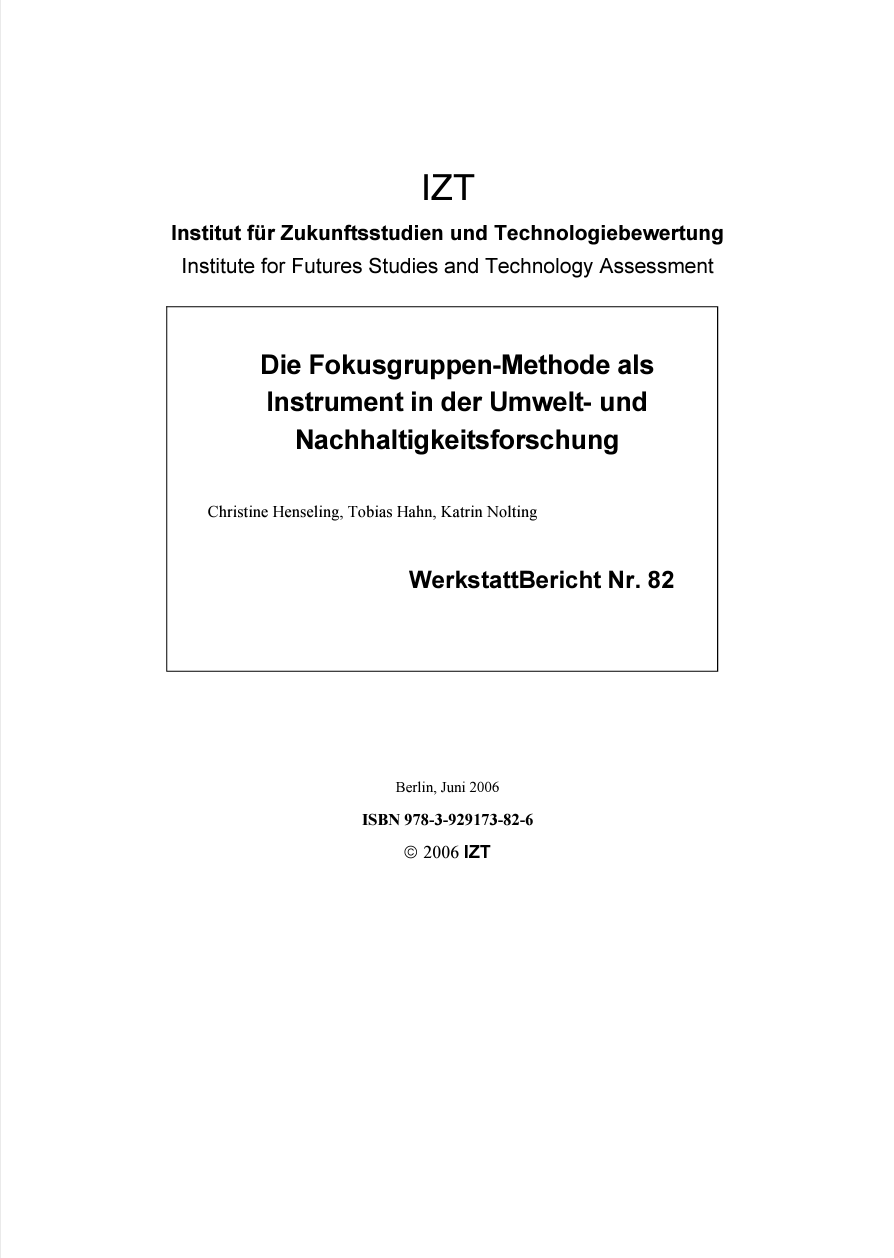The focus group method as an instrument in environmental and sustainability research
Abstract
This workshop report presents the focus group method. It describes the aims and areas of application of the method, provides information on planning, conducting and analysing focus groups and describes examples of their use in environmental and sustainability research. In particular, the methodological experience that the IZT has gained with the use of focus groups in its research projects is discussed. Focus groups are a qualitative research method in which discussion groups are put together on the basis of certain criteria (e.g. milieu- or actor-specific) and stimulated to discuss a specific topic by means of information input. The discussion groups usually consist of six to ten participants and are supervised by a moderator. The process is particularly suitable for generating or reviewing theses and ideas. It is used, for example, to obtain in-depth information about the motivations and backgrounds of certain target groups. Focus groups can also be used to obtain user-orientated information for product development or to test the design and process of campaigns and participation activities. In the environmental and sustainability sector, focus groups can be used, for example, in the following fields of application: - to evaluate and further develop ecological products and services in order to align product design as closely as possible with user requirements; - - - to evaluate and further develop communication strategies (e.g. sustainability campaigns, ecological marketing, environmental labels); to determine attitudes, motives and willingness to act (e.g. environmental awareness, environmental commitment, willingness to pay for sustainable products); to determine the need for information and action. Advantages of the method: The group situation and the resulting interaction and communication between the participants offers the advantage that the participants inspire each other with their statements and that topics can be dealt with in a much more comprehensive, varied and sometimes more creative way than in individual interviews. Another advantage of focus groups is that they can help to uncover completely new, unexpected and previously unconsidered aspects and contexts and provide impetus for new ideas. Due to the strong focus on dialogue and an open and flexible interview style, which allows questions to be asked and topics to be explored in greater depth, focus groups can be used to gain more in-depth insights than is possible with fixed questionnaires, for example. Disadvantages: Nevertheless, the method also has some disadvantages. As focus groups work with small samples, their results are not representative of the target group as a whole. In many projects, focus groups are therefore combined with quantitative methods, depending on the question being asked. In general, a focus group is very dependent on the composition of its participants. As you are usually dealing with unknown people, there is a certain risk here. Does a dynamic and balanced discussion actually take place? Do all participants contribute to the discussion? How interested and keen to discuss are the participants? Overall, focus groups are a useful and powerful approach that can be used in many areas of environmental and sustainability research.
